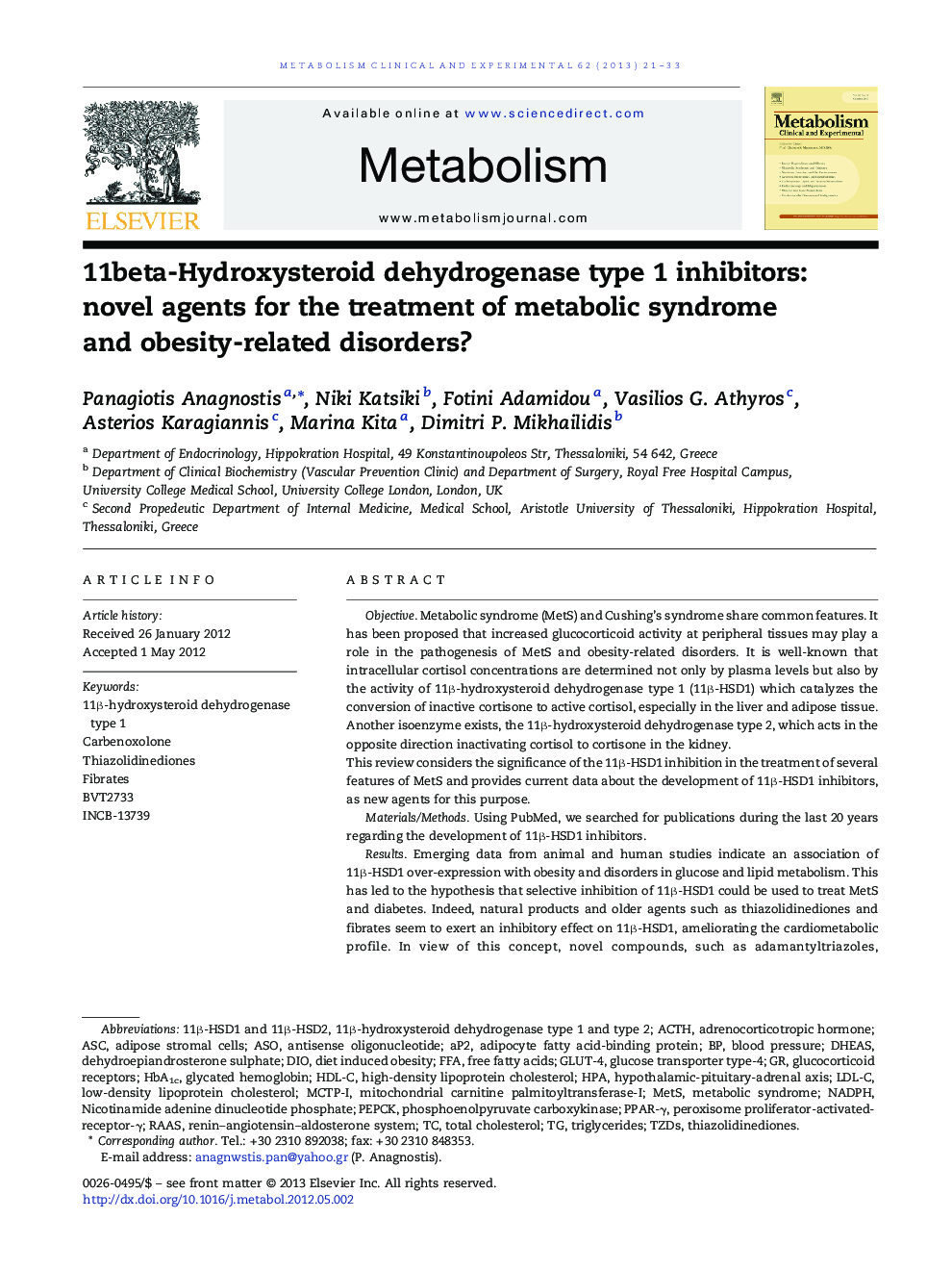| Article ID | Journal | Published Year | Pages | File Type |
|---|---|---|---|---|
| 2805959 | Metabolism | 2013 | 13 Pages |
ObjectiveMetabolic syndrome (MetS) and Cushing's syndrome share common features. It has been proposed that increased glucocorticoid activity at peripheral tissues may play a role in the pathogenesis of MetS and obesity-related disorders. It is well-known that intracellular cortisol concentrations are determined not only by plasma levels but also by the activity of 11β-hydroxysteroid dehydrogenase type 1 (11β-HSD1) which catalyzes the conversion of inactive cortisone to active cortisol, especially in the liver and adipose tissue. Another isoenzyme exists, the 11β-hydroxysteroid dehydrogenase type 2, which acts in the opposite direction inactivating cortisol to cortisone in the kidney.This review considers the significance of the 11β-HSD1 inhibition in the treatment of several features of MetS and provides current data about the development of 11β-HSD1 inhibitors, as new agents for this purpose.Materials/MethodsUsing PubMed, we searched for publications during the last 20 years regarding the development of 11β-HSD1 inhibitors.ResultsEmerging data from animal and human studies indicate an association of 11β-HSD1 over-expression with obesity and disorders in glucose and lipid metabolism. This has led to the hypothesis that selective inhibition of 11β-HSD1 could be used to treat MetS and diabetes. Indeed, natural products and older agents such as thiazolidinediones and fibrates seem to exert an inhibitory effect on 11β-HSD1, ameliorating the cardiometabolic profile. In view of this concept, novel compounds, such as adamantyltriazoles, arylsulfonamidothiazoles, anilinothiazolones, BVT2733, INCB-13739, MK-0916 and MK-0736, are currently under investigation and the preliminary findings from both experimental and human studies show a favourable effect on glucose and lipid metabolism, weight reduction and adipokine levels.ConclusionsMany compounds inhibiting 11β-ΗSD1 are under development and preliminary data about their impact on glucose metabolism and obesity-related disorders are encouraging.
